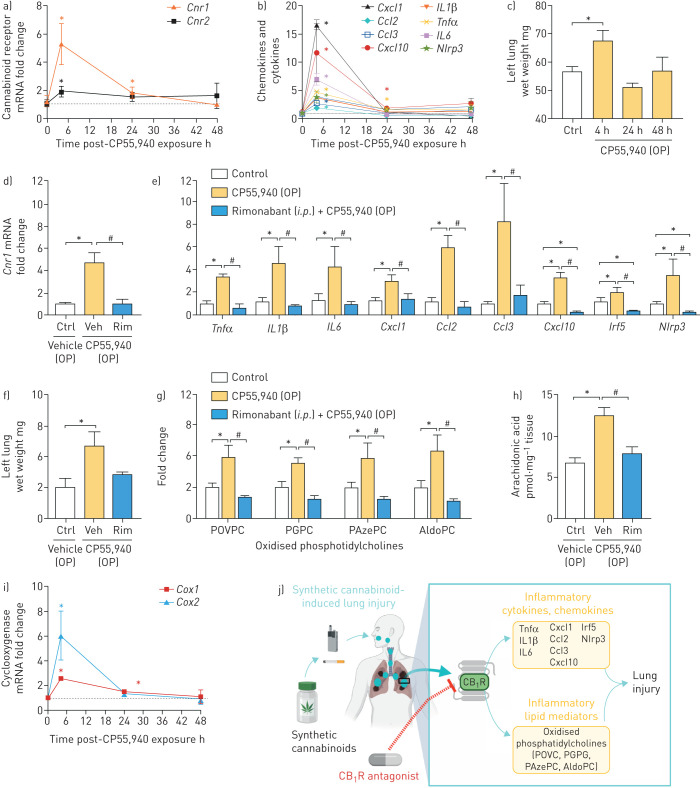FIGURE 1.
Oropharyngeal (OP) synthetic cannabinoid administration-induced gene expression of inflammatory genes and lipids via activating cannabinoid receptor 1 (CB1R) in lungs. OP CP55,940 increased the gene expression of a) CB1R and CB2R receptors, and b) pro-inflammatory cytokines, chemokines and pro-inflammatory transcription factors, and c) wet weight of the left lung. CB1R antagonist rimonabant (Rim) (10 mg·kg−1, intraperitoneal) administration prevented cannabinoid-induced gene expression of d) CB1R, and e) pro-inflammatory cytokines, chemokines and pro-inflammatory transcription factors, and f) lung wet weight; and generation of inflammatory lipids (g) oxidised phosphatidylcholines and h) arachidonic acid). i) SC induced gene expression of cyclooxygenase in lungs at 4 h after OP CP55,940 administration. j) Graphical representation. The graphical representation was generated in Biorender. Data are presented as mean±sem. Data were analysed by one-way ANOVA followed by Dunnett's multiple comparisons test. n=4 per group. POVPC: palmitoyl-oxo-valeryl-phosphotidylcholine; PGPC: palmitoyl-glutaryl-phosphotidylcholine; PAzePC: palmitoyl-azelaoyl-phosphotidylcholine; AldoPC: palmitoyl-oxo-nonanoyl-phosphotidylcholine. *: p<0.05, versus control (Ctrl) group; #: p<0.05, versus vehicle-injected (Veh) and OP CP55,940 administered group.

